Discover Emergence Magazine Podcast
Emergence Magazine Podcast

Emergence Magazine Podcast
Author: Emergence Magazine
Subscribed: 1,165Played: 49,524Subscribe
Share
© Emergence Magazine 2022
Description
Emergence Magazine is an award-winning magazine exploring the threads connecting ecology, culture and spirituality. Our podcast features exclusive interviews, author-narrated essays, fiction, multipart series, and more. We feature new podcast episodes weekly on Tuesdays.
326 Episodes
Reverse
Journalist Ben Goldfarb follows the winding course of the Klamath River, from Oregon’s high desert plateaus to the Pacific Ocean in Northern California, as its four most obstructive dams are dismantled under a restoration plan reopening hundreds of miles of salmon spawning habitat. Ben chronicles how the prolonged absence of salmon has reshaped this waterway, its surrounding redwood forests and canyons, and the Yurok, Karuk, Hoopa, and Shasta tribes for whom this creature is not only sustenance, but sacred kin. Tracing the monumental effort to restore the vital presence of salmon, Ben witnesses how the restitching of relationships between land, fish, and humans is nourishing this ecosystem anew.
Read the essay, featuring a postscript from Ben as he returns to the Klamath
Discover our latest print edition, Volume 6: Seasons.
Photo by Kiliii Yüyan.
Learn more about your ad choices. Visit megaphone.fm/adchoices
Earlier this year, the remarkable eco-philosopher Joanna Macy passed away at age ninety-six. Among her many gifts, she was a seminal translator of the great twentieth-century poet Rainer Maria Rilke. In our final episode of the year, we return to a selection of translations of Rilke from The Book of Hours: Love Poems to God, by Joanna and award-winning poet Anita Barrows, that speak to the beauty and mystery present in worlds both seen and unseen, the unknowability of the Divine, and the union of nature and the transcendent. We share them this holiday period in the hope they nourish heart and spirit, inviting reflection on all that is given and all that fades away.
Cover artwork by Claire Collette.
Learn more about your ad choices. Visit megaphone.fm/adchoices
In this week’s story, Australian writer and Zen roshi Susan Murphy explores how haiku’s reflections of the seasons are being disrupted by the climate crisis. How will this poetic form bear witness to the ferocity of change reshaping the seasons? Woven with verses from Bashō, Buson, Issa, and fellow Volume 6 contributor Ron C. Moss, this story contemplates whether haiku may, in fact, be a vessel for holding the paradox of the seasons in this moment: allowing us to both mourn and love a rapidly evolving Earth.
Read the essay.
Discover our latest print edition, Volume 6: Seasons.
Image: Asako Narahashi, Kawaguchiko #5, 2003
© Asako Narahashi / Courtesy of Ibasho
Learn more about your ad choices. Visit megaphone.fm/adchoices
Fungi are veteran survivors of ecological disruption, and they demonstrate a radically different approach to crisis and decision-making than we do. While we tend to work with binaries and control when navigating uncertainty, mycelium works from a place of relationality. In this conversation, acclaimed mycologist and author Merlin Sheldrake explores what we can learn from mycelial networks about building flexible ecological, social, or structural systems that are rooted in mutuality and exchange. Tracing the ways we can embrace a mycelial way of thinking, he invites us to dwell within the “substrate of mystery” embodied by fungi: a liminal space where new ways of being can emerge.
Read the transcript.
Photo by Tomas Munita.
Learn more about your ad choices. Visit megaphone.fm/adchoices
This Thanksgiving holiday, we return to a conversation with Potawatomi botanist Robin Wall Kimmerer, where she talks about her new book The Serviceberry, which emerged from an essay she wrote for us about the potential of a gift economy to recognize the sacred nature of the Earth. Robin introduces a set of ethical and pragmatic principles, known as “the Honorable Harvest,” that orients us to take only what we need, share abundance, and offer gratitude for what is selflessly given to us; and leads us towards embodying a simple “practical reverence” for the Earth.
Read the transcript.
Discover our latest print edition, Volume 6: Seasons.
Photo courtesy of MacArthur Foundation.
Learn more about your ad choices. Visit megaphone.fm/adchoices
In November, we celebrated the launch of our latest print edition, Seasons, at the Tate Modern in London. Recorded live at the event, this conversation featuring four Volume 6 contributors, delves into each of their stories and the themes of requiem, invitation, and celebration at the heart of their seasonal experiences. From honoring the fragility of spring birdsong, to finding an expanded sense of self through seasonal “noticelings,” this wide-ranging and lively exchange explores the myriad ways of remembering our relationship with the seasons.
Read the transcript.
Discover our latest print edition, Volume 6: Seasons.
Learn more about your ad choices. Visit megaphone.fm/adchoices
In this conversation from our archive, Australian writer and Zen roshi Susan Murphy immerses us in the ancient tradition of koan and the power of the “not-knowing mind” to open a treasury of resources for meeting the climate crisis. Sharing several koans from Zen masters that push at the boundaries of our consciousness, she speaks to the way they can draw us deeper into kinship and reminds us that the Earth Herself is a koan waiting to be known.
Read the transcript.
Photo by Warren Summers.
Learn more about your ad choices. Visit megaphone.fm/adchoices
We return to one of our most in-depth interviews this week: a conversation with poet Jane Hirshfield, who has contributed a new poem to our latest print edition, Volume 6: Seasons. Reciting several poems from her prolific body of work, including Time Thinks of Time, she speaks about how her Zen practice has led her to embrace the largeness of time’s mystery. She shares how this inner “spaciousness,” present in many of her poems, can uncover intimacy with both the ordinary and the divine.
Read the transcript.
Read Jane’s poem “Time Thinks of Time.”
Photo by Curt Richter.
Learn more about your ad choices. Visit megaphone.fm/adchoices
Probing the flatness of his Midwestern landscape, Roy Scranton challenges us to peer beyond what meets the eye to engage more thoughtfully with a place’s ecological, geological, and cosmological dimensions. What first appears to him as farmland, highways, and worn industrial sprawl in his new home of South Bend, Indiana, begins under sustained attention to disclose rich layers of physical and temporal meaning. Roy invites us to practice this same attentiveness, allowing ourselves to be changed by the stories that make a place new and strange, and the mundane alive with resonance.
Read the transcript.
Artwork by Nico Krijno.
Learn more about your ad choices. Visit megaphone.fm/adchoices
In this final talk of a three-part series, Emergence executive editor and Sufi teacher Emmanuel Vaughan-Lee speaks about two essential elements needed if we are to tend to a relationship of reverence with the Earth: humility and offering. To ground ourselves in respect for the power of the Earth, and respond to Her unconditional generosity, we can begin by remembering to de-center our needs, and instead ask ourselves: What attitude towards the seasons can help me develop a relationship to place? How can I respond with love not only to the wonder, but to the pain of the Earth? When we are rooted in this space of humility and offering, we can remain open and present with Her beauty and loss.
Read the transcript.
Discover our latest print edition, Volume 6: Seasons.
Artwork by Thoth Adan
Learn more about your ad choices. Visit megaphone.fm/adchoices
We are in need of stories that can help us navigate the complexity of our moment: both the unfolding ecological catastrophe and the love we feel for our burning world. This second talk in a series given by Emergence executive editor and Sufi teacher Emmanuel Vaughan-Lee at our Song of the Seasons retreat on Whidbey Island explores how the story of birth, growth, decay, and death told by the seasons, regardless of where one is in the world, invites us into a space of reverence that offers a container for holding love and loss amid the vast ecological changes reshaping our Earth.
Read the transcript.
Discover our latest print edition, Volume 6: Seasons.
Artwork by Thoth Adan.
Learn more about your ad choices. Visit megaphone.fm/adchoices
As an introduction to the themes within our latest print volume, Seasons, we’re sharing a series of talks over the next few weeks given by Emergence executive editor and Sufi teacher Emmanuel Vaughan-Lee at our Song of the Seasons retreat on Whidbey Island. This first talk explores the cyclical nature of the seasons, and how when we devote our attention to these cycles over time, their continuous variation reveals itself, unfurling like a spiral that draws us deeper into kinship with the Earth. If we find the courage to remember ourselves not as impervious to the rhythms of the seasons, but as profoundly connected to them, we can begin to open to their sacred invitation.
Read the transcript.
Discover our latest print edition, Volume 6: Seasons.
Artwork by Thoth Adan.
Learn more about your ad choices. Visit megaphone.fm/adchoices
After the destructive fires of 2020, writer and facilitator Maya Pace awakens to how California’s essential dry, scorched nature has been repressed to realize a vision of economic and social prosperity across the state. Searching for what it means to love a place that is harsh, uncomfortable, or increasingly unfamiliar, she connects with communities living in landscapes removed from our ideals of paradise. What does it mean to live fully in the reality of a place, rather than how we wish it to be? she asks. What if our relationship with the land grew not from a practice of control, but from surrender?
Read the essay.
Photo by Young Suh.
Learn more about your ad choices. Visit megaphone.fm/adchoices
A companion to our Breathing with the Forest feature, this conversation from our 2023 Shifting Landscapes exhibition with Marshmallow Laser Feast director Ersin Han Ersin explores the importance of imagination in making visible the often invisible threads that bind us together with the living world. He talks about the collective’s work creating spaces where people can step into deliberate acts of connection with the more-than-human, and how art can allow us to embody the experiences of other beings by playing with the plasticity of our perception.
Read the transcript.
Explore Breathing with the Forest online experience.
Image courtesy of Marshmallow Laser Feast and Sandra Ciampone.
Learn more about your ad choices. Visit megaphone.fm/adchoices
Nonfiction writer Stephanie Krzywonos opens a door into the histories of our most iconic and desired pigments, from ochre to bone black, lapis lazuli to mummy brown. In our earliest attempts to recreate the magnificent colors of Earth for our art, garments, make-up, and more, we mixed and alchemized matter drawn from the flesh of the Earth Herself. Stephanie follows a spectrum of colors from these origins, through the entangled webs of colonialism, capitalism, and the more-than-human world, to their synthetic replication and mass production, inviting us to see how our colors hold stories of both lightness and darkness.
Read the essay.
Artwork by Studio Airport.
Learn more about your ad choices. Visit megaphone.fm/adchoices
In honor of the recent passing of the eco-philosopher, Buddhist scholar, and dear friend Joanna Macy, we return to our interview with her from 2018. In this conversation, she traces the ways a life-long heart connection with the living world cultivated a resounding ecological awareness within her work and spirituality; and explores how we might return to an “ecological self” as a way to be of service amid the climate catastrophe. Joanna was also a seminal translator of Rainer Maria Rilke’s poetry, finding his contemplations on the entwinement of grief, beauty, and spiritual life deeply resonant. You can hear Joanna recite, alongside Anita Burrows, a selection of their translations in our audio story Be Earth Now.
Read the interview transcript.
Photo by Adam Loften.
Learn more about your ad choices. Visit megaphone.fm/adchoices
We’re living in a world that is perpetually bathed in artificial light. We repel the dark. Yet, we live in the midst of what is often referred to as “dark times.” How can gazing upon the night sky connect us to a greater sense of space, beauty, and possibility? Are we able to come into a relationship with something infinitely bigger than ourselves? How can we be present and engaged amid the realities of environmental crisis, inequality, and shifting political tides? Whether you live in the city or someplace where the outdoors is more accessible, this final episode in our summer of practice audio series invites you to immerse yourself in nightfall and welcome the night as a window into mystery and awe.
Explore the online version of this practice.
Illustrations by Aldo Jarillo.
Learn more about your ad choices. Visit megaphone.fm/adchoices
What does it mean to listen without judgement, allowing your ears to be present, open, and curious? Inspired by our virtual reality film Sanctuaries of Silence, which follows acoustic ecologist Gordon Hempton as he documents the sounds of the Hoh Rain Forest in western Washington State, this practice invites you to discover how a new experience of sound and silence can profoundly impact your relationship to place. By taking in sounds with equal value and becoming aware of the presence and absence of noise, voices, and quiet, the simple act of listening can help us come to know a landscape through the senses, rooting us in the power of sound and silence.
Explore the online version of this practice.
Illustration by Aldo Jarillo.
Learn more about your ad choices. Visit megaphone.fm/adchoices
Biologist David G. Haskell calls the practice of listening to other species the original “augmented reality.” In opening our minds to the language of the species around us, we can experience connection and meaning that far transcends anything offered by an electronic substitute. This week, we’re sharing the next instalment in our Summer of Practice podcast series with a practice David wrote for us that invites you to attune to the birdcall near your home; become aware of the ecological rhythms and connections around and within you; and step into a sense of belonging as the conversations of humans and birds intertwine.
Explore the online version of this practice.
Illustration by Aldo Jarillo.
Learn more about your ad choices. Visit megaphone.fm/adchoices
We continue our summer of practice with a second series of audio practices throughout August. In this episode, you are encouraged to respond to the ways trees invite you—through bloom, shade, wonder, breath—into closer relationship. From the old-growth forests whose presence precedes our lifetimes to the rooted sentinels of our own backyards, trees are humans’ oldest and most constant companions. This practice calls you to bring a renewed quality of attention to the threads that bind you and trees together within a shared biosphere.
Explore the online version of this practice.
Illustration by Aldo Jarillo.
Learn more about your ad choices. Visit megaphone.fm/adchoices


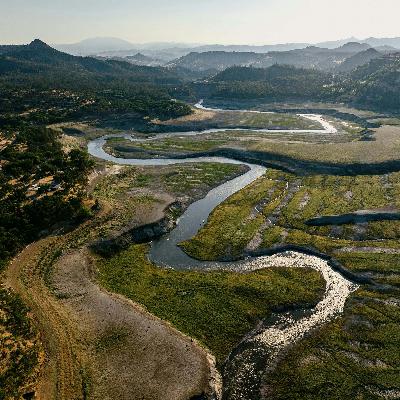
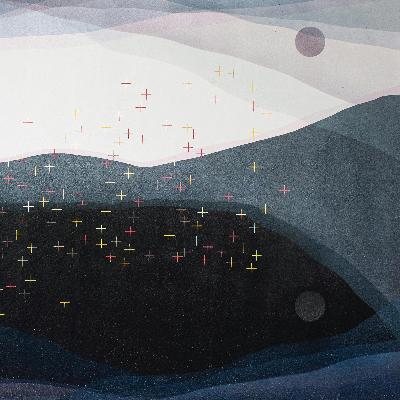
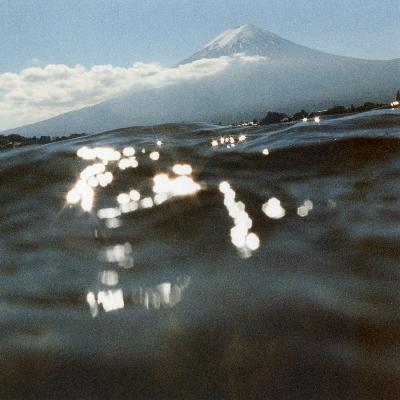

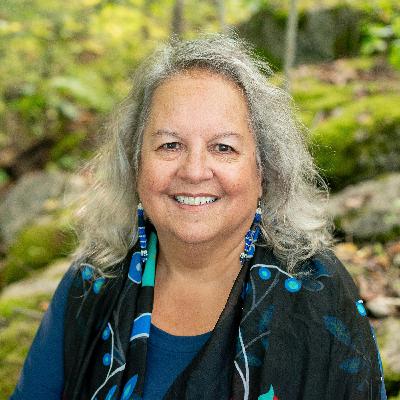
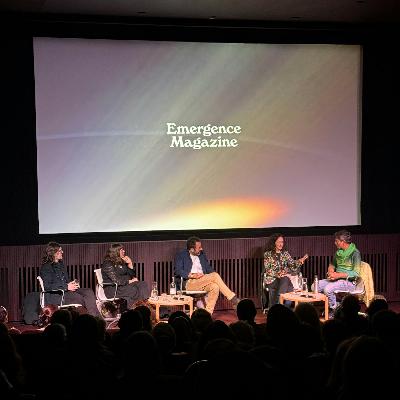


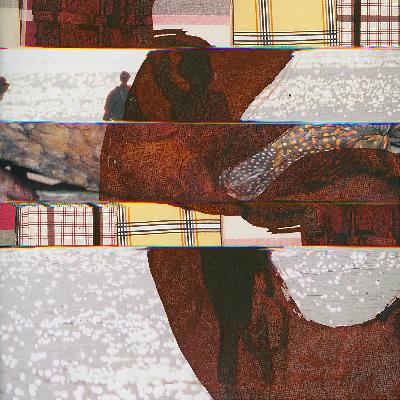

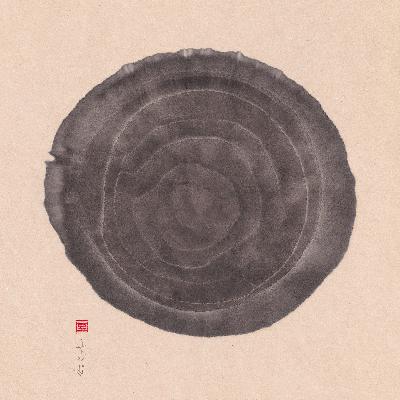
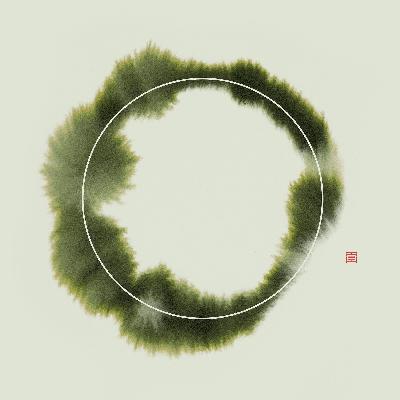
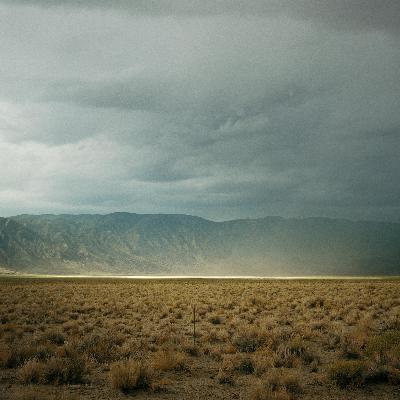



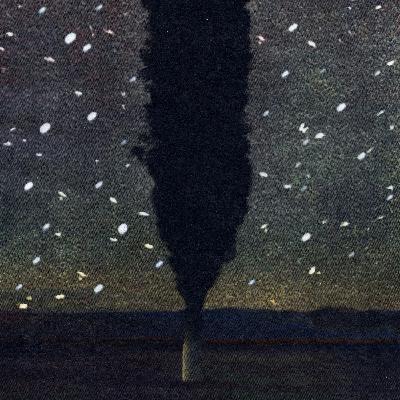
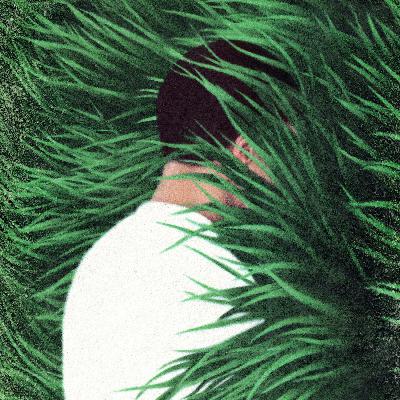
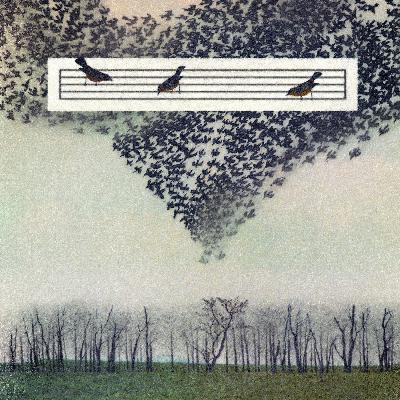
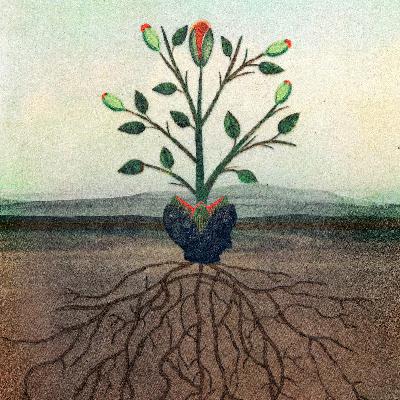



truly inspiring episode, enjoyed it greatly!
Here